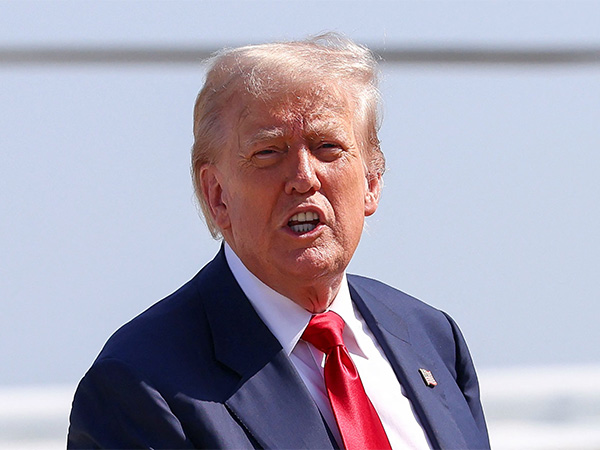Washington: U.S. President Donald Trump on Wednesday signed an Executive Order imposing an additional 25 per cent tariff on imports from India, citing New Delhi’s continued purchases of Russian oil as a threat to U.S. national security and foreign policy interests.
According to the order released by the White House, Trump invoked relevant trade laws and national emergency provisions, arguing that India’s direct and indirect imports of Russian oil represent an “unusual and extraordinary threat” to the United States.
The new tariff brings the total duty on Indian imports to 50 per cent. While the existing tariff takes effect on August 7, the additional 25 per cent levy will come into force 21 days later. The new rate will apply to all Indian goods entering U.S. customs territory, except those already in transit or qualifying under specific exemptions.
“In accordance with applicable law, articles of India imported into the customs territory of the United States shall be subject to an additional ad valorem duty of 25 per cent,” the order states. It further specifies that the new rate will apply from 12:01 a.m. EDT, 21 days after the order’s signing date, excluding shipments already en route.
The order allows for revisions depending on future developments, including retaliatory actions or policy changes by India or Russia.
Trump had earlier indicated the tariff hike during an interview with CNBC on Tuesday, saying, “They’re fuelling the war machine, and if they’re going to do that, then I’m not going to be happy.” He said the current 25 per cent duty would be raised “very substantially” due to India’s ongoing energy trade with Russia.
The former President, who announced the original 25 per cent tariff last week, has repeatedly accused India of profiting from the resale of Russian oil on the open market. In a post on his social media platform, Truth Social, Trump wrote:
“India is not only buying massive amounts of Russian oil, they are then, for much of the oil purchased, selling it on the open market for big profits… Because of this, I will be substantially raising the tariff paid by India to the USA.”
India Reacts, Calls Move “Unjustified and Unreasonable”
In response, India issued a strong rebuttal, calling the U.S. decision unfair and inconsistent with the global energy situation. The Ministry of External Affairs (MEA) said India’s energy imports are driven by economic necessity and market realities.
“India began importing from Russia because traditional suppliers diverted their shipments to Europe following the Ukraine conflict,” said the official MEA spokesperson. “At the time, the United States actively encouraged Indian imports to stabilize global energy markets.”
The spokesperson pointed out that the very countries now criticizing India—including the U.S. and EU—continue to trade with Russia in substantial volumes.
According to the MEA, the EU had bilateral goods trade with Russia worth €67.5 billion in 2024 and traded services worth €17.2 billion in 2023. European imports of Russian LNG also hit a record 16.5 million tonnes in 2024. Additionally, the EU’s trade with Russia spans sectors such as fertilizers, chemicals, mining products, machinery, and steel.
On the U.S. side, the MEA noted continued American imports of Russian uranium hexafluoride, palladium, fertilizers, and chemicals, calling out the double standard. “In this background, the targeting of India is unjustified and unreasonable,” the statement added.
India reiterated that it reserves the right to make sovereign decisions in its national interest. “Like any major economy, India will take all necessary measures to safeguard its national interests and economic security,” the MEA stated.
Energy Policy Based on National Interest
India has consistently maintained that its energy procurement decisions are guided by national interest and global market dynamics. Last week, MEA spokesperson Randhir Jaiswal said:
“Our energy sourcing strategy is based on availability, affordability, and the prevailing global situation.”
When asked whether Trump’s tariff threats would impact India-Russia ties, Jaiswal added that India’s bilateral relationships stand on their own merit and should not be viewed through the prism of third-party concerns.
Trump had earlier suggested that a halt in Indian purchases of Russian oil would be “a good step.” However, analysts warn that if India stops buying Russian crude, global oil prices could surge to $200 a barrel, potentially hurting global consumers and energy markets.
The tariffs come amid uncertainty over an interim India-U.S. trade deal that, if finalized, could have helped prevent further escalation in duties.













